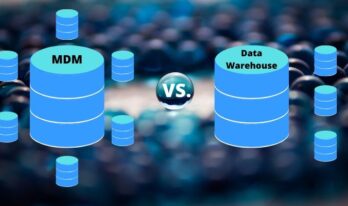An organization focused on customer experience achieves faster delivery of products and services along with better quality.
It also produces products that are more in line with market needs and thus creates a strong marketing advantage.
BPM enables companies to model, deploy, optimize, and manage business processes.
Business process management solutions provide a continuous and collaborative channel. Through this, the change is instituted and information is distributed across the enterprise.
Organizations use this software to coordinate their business environment, schedule, and synchronize changes.
It also helps them test the effectiveness of new strategies and thus install best practices.
See below a few reasons why one should use open source tools:
-
- Cost: Most of the open-source tools are freely available to all, some tools are paid, but the price is very less than most of the other tools.
- Customization: Open Source tools are available with their source code (except a few), which makes it easy to customize as per our requirements.
- Very few issues (Bugs can be easily fixed): Behind every Open Source tools there are some community and forums which are always available to resolve your error and bugs. You can ask for any problem any time without any extra cost.
Using BPM is an interesting practice for identifying operational bottlenecks. It also improves everyday activities with its valuable and accurate insights.
It is also concerned with the automation of procedures and the elimination of errors and costs. Below mentioned are some of the top open-source BPM tools:
It is an online business process management tool with 25 years of experience and more than 1,000,000 users worldwide. It allows companies to collaborate, model and control all the activity flows of a company.
Delivered with predefined model libraries, user interface building blocks, Bizagi accelerates the BPM journey of its customers.
Key Features:
-
- Process modeling
- Security management and governance
- Process collaboration
- Workflow portal
- Monitoring and management
Lucidchart is a web diagram creation tool allowing to draw diagrams. It is used by over 3 million users.
It helps in particular with programming flowcharts, wireframe, UML, mind maps, etc.
With Lucidchart, one can create diagrams in real-time with synchronized changes.
Key Features:
-
- Actionable insights
- Manage, sort, and update with ease
- Document retention
- SAML-based SSO
- Easy admin controls
ProcessMaker is a software that allows you to model your business processes. You access a graphical interface on which you can drag the different constituent elements of your workflows.
Its dashboard measures performance, task completion time, standard deviation, efficiency index, etc.
Key Features:
-
- Low-Code iBPMS Platform
- Automate Workflows
- Rapidly Deploy Solutions
- Streamline Compliance
The Bonita interface allows you to design, execute and optimize business processes. All this while it guarantees you an essential level of control. It aims at the continuity of your service while facilitating the task of employees.
Key Features:
-
- Highly reliable and scalable
- Easy to use
- Process modeling
- Integrates with many enterprise systems like CRMs and ECMs
The Red Hat Process Automation Manager enables administrators to manage all steps of the project lifecycle. This includes modeling, simulation, testing, deployment, and optimization.
The dynamic form design tool helps users add business rules using decision tables, scorecards, and decision trees.
Key Features:
-
- Business modeling
- Cloud-native development and deployment
- Modern User Experience
- Resource optimization
Also Read: Business Process Reengineering – Techniques & Tools for Your Business
Activiti is a Java-based open-source BPM software. See below some of its prominent features helpful with you BPM plan.
Key Features:
-
- Decision Runtimes are designed to integrate with your cloud-native infrastructure
- Simplified system-to-system interactions that can scale in distributed environments
- Cloud-ready, secure WebSocket and subscription handling as part of GraphQL integration
Modelio is an open-source BPM tool which has been active in the industry for about 20 years. The software is excellent for your customization needs. Its users range from developers and business architects to analysts.
Key Features:
-
- Multiple platform integration
- Efficient UML and BPMN (Business process model and notation) maker tool
- Supports Jython scripting language using which you can define macro scripts
- Model extensions and additions can be performed effortlessly
jSonic BPM software allows process owners to manage their business operations with market conditions. It is a highly interactive, user-friendly, web-based tool that helps organizations optimize asset utilization and increase process efficiency.
Key Features:
-
- Successfully automate and manage workflow
- Process management
- Interface designer
- Activity monitoring
- Data management
Camunda is a lightweight open-source workflow automation tool with extensive scalability. You can build decision tables and BPMN process diagrams with an easy to use application. Using the BPMN specifications, it helps assist the process executions.
Key Features:
-
- Business rules management
- Collaboration
- Process mapping
- Lifecycle management
- Process modeling & design
jBPM has helped users to design their own business automation plans Reference of open source BPM for several years, jBPM has been integrated by many editors into their solutions.
Compatible with the BPMN 2.0 Specifications, it is a technical solution that is powerful, light and simple to configure.
Key Features:
-
- Eclipse and a web-based editor
- Interactive management console
- Pluggable transactions
- Manage workflows graphically
You may also like to read:




